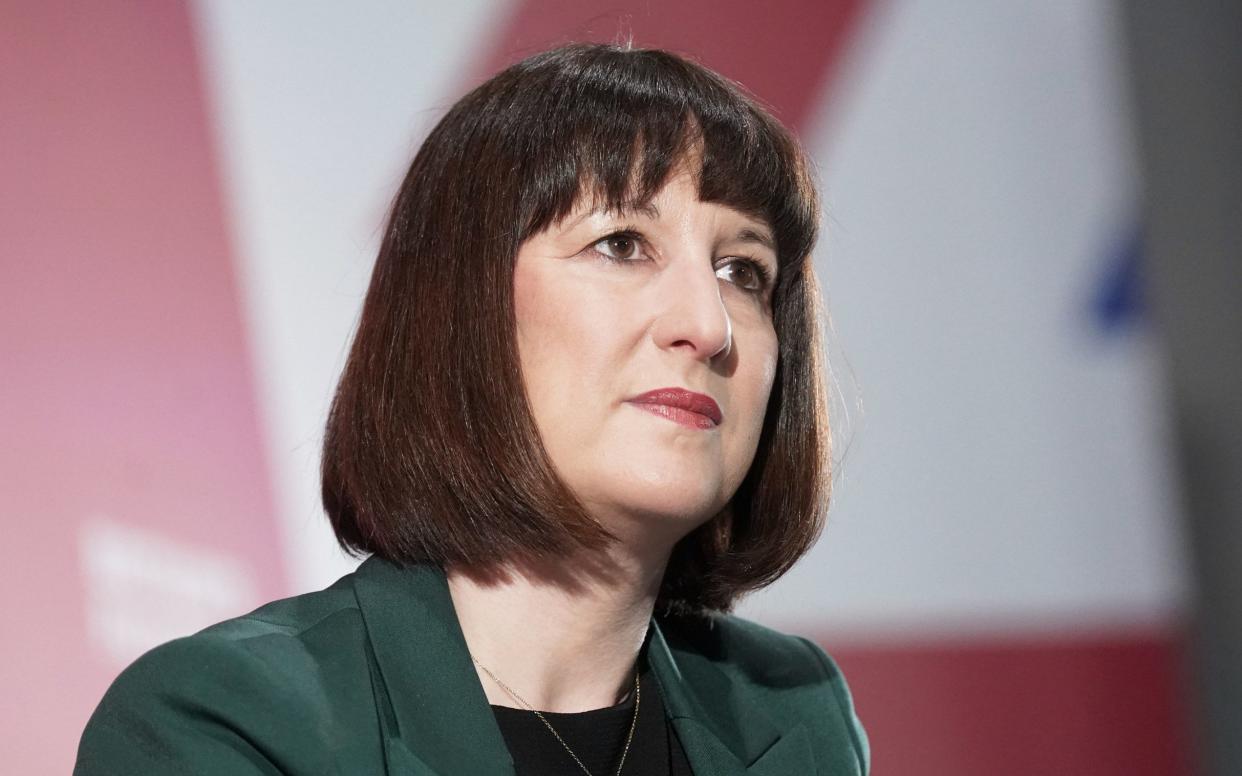Dread the day when Rachel Reeves is given the keys to No 11

After 14 years out of office, how can we tell what the shadow chancellor is likely to do if she is given the keys to 11 Downing Street by the British public?
Public commitments are few, so I suggest “by their advisers ye shall know them” is the next best way to predict what measures Labour will favour when it is given real power.
Helpfully, Labour announced a new team of tax advisers to Rachel Reeves last week, and if we are to take them at their word, readers could be forgiven for hiding under the sheets or considering moving to Dubai.
The new team is full to the brim with advocates of yet more tax rises (yes, there’s still room for increases), so I have taken the trouble to bring you a representative sample of their views.
The panel’s task is to advise how to “modernise” HM Revenue & Customs (HMRC), including strategic and operational issues around increasing tax compliance, strengthening HMRC’s powers and penalties, improving customer service and digitising more of its activities.
Although these are not economic issues but operational ones, there is a clear link to how simplifying taxes, improving their collection, strengthening the powers of collectors and digitalisation will impact taxes themselves.
For instance, while harmonising the starting thresholds for different tax liabilities should make processing and collection simpler, if it’s achieved by raising thresholds it means inevitably higher taxes, some dangerously so.
Chaired by shadow financial secretary James Murray MP, Labour’s tax panel includes Sir Edward Troup, who spent 13 years at the Treasury and HMRC, including as the latter’s executive chairman and permanent secretary from 2016-2017.
Sir Edward has aired his views on tax matters via social media – with a clear bias towards higher taxes and HMRC knowing best.
Revealing his preference for higher taxes, his tweets say on higher capital gains tax: “Keep it simple, push up the rates, remove some reliefs. But devote real energy to the big taxes – IT, NICs, VAT.”
On pursuing the self-employed, he writes: “Announcing the relaxation of IR35 in the mini-Budget was fiscally, economically and politically illiterate. It should be top of the list to go.”
He also reposted a tweet advocating pensions be liable for inheritance tax – and celebrated a rise in inheritance tax revenues by tweeting “Good”.

Sir Edward also opposed investment allowances – proposed cutting capital gains tax allowances to a nominal amount; and supported increasing National Insurance for the self-employed and corporation tax for one-person companies.
In a talk to the pro-Labour Resolution Foundation, he announced free TV licences for the elderly was “ridiculous”, that it was a “complete disgrace” pensioners weren’t paying National Insurance and that “we are going to have to look at the more senior members of society” for tax.
As well as this litany of demands for higher taxes, just recently he defended HMRC on closing its helplines, writing on X (formerly Twitter): “HMRC’s decision to suspend their helpline will have involved much thought and some tricky trade-offs. For HMT to reverse that decision today is not the way to run a tax administration.”
An ex-tax official defending other tax officials’ unwillingness to provide a customer-facing advice and information service? Labour’s idea that Sir Edward is someone who can “reform” HMRC is a sick joke played upon hard pressed taxpayers and businesses.
Next is Dame Margaret Hodge MP, a well-known Labour figure and former chairman of the Public Accounts Committee. In 2015, Lady Hodge was accused of hypocrisy when it was reported she had received £1.5m from an overseas Trust involving Lichtenstein and Panama, a system she had previously criticised. She too wants to extend National Insurance to pensioners and savings income.
Ironically, Lady Hodge previously accused Sir Troup of belonging to the “incestuous world” of tax professionals and his background “draws into question whether or not he should be in charge of our tax system”. Amen to that.
The third panel member is Bill Dodwell who, when head of the Office of Tax Simplification, issued a report suggesting capital gains tax rates could be raised to match income tax levels.
Notice how there was no suggestion that income tax be cut to CGT levels, or that they might meet somewhere in the middle? This is how simplification is used as a means to raise taxes; the journey very rarely involves lowering tax.
Finally there is Mike Bracken. Currently one of President Macron’s “Global Tech Thinkers”, he is a co-founder of consultancy Public Digital and previously the UK’s first government chief data officer, and founder and executive director of the Government Digital Service (GDS).
Bracken’s appointment suggests an intensification of HMRC’s drive towards “Making Tax Digital” that includes forcing self-assessment taxpayers to file returns four times a year.
What the make-up of the panel tells us is that its members are of the very type that can be expected to support higher taxes and pass it off as simplification and tightening collection.
The reality is that Labour will desperately need money for its spending plans, that it is surrounding itself with people who advocate higher taxes (even when such policies might produce falling revenues, which it will blame on tax avoidance), and these talking heads and “experts” will be rolled out to support whatever Rachel Reeves decides to do with their advice.
No matter what you earn or how you source your income, be afraid, be very afraid.


 Yahoo News
Yahoo News 
